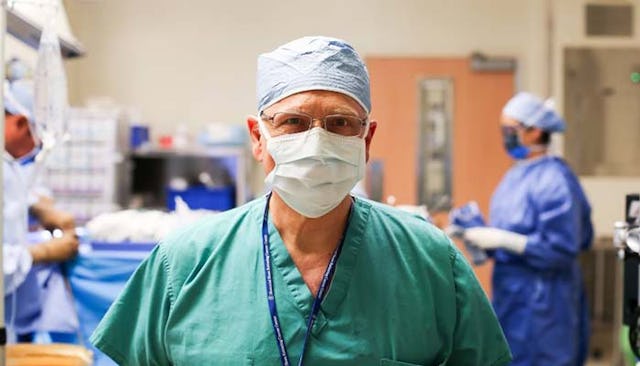Surgeon's Heartbreaking Post About Kids Dying In His Care Goes Viral

Humans of New York posts photo of surgeon with heartbreaking tale
Humans of New York posted a photo yesterday that is quickly spreading around the internet because of the tragic honesty of it. Dr. Michael P. La Quaglia, Chief Pediatric Surgeon at Memorial Sloan-Kettering Cancer Center speaks of what happens when he loses a child to cancer, and how he struggles every time it’s happened.
“The absolute best thing in the world that can happen to me is telling a parent that their child’s tumor is benign,” the doctor begins. “I live for those moments. And the worst thing that can happen to me is telling a parent that I’ve lost their kid. It’s only happened to me five times in thirty years. And I’ve wanted to kill myself every single time.”
There is nothing more heartbreaking than the thought of a child fighting an incurable illness. We think about how horrific it must be for families and how tragic it is when a child is unable to grow into the years he should be afforded. But how often do we think of the doctors who are trying to save them? It’s another side of the heart-wrenching story of children who lose their fight.
[shareable_quote]”…the worst thing that can happen to me is telling a parent that I’ve lost their kid. It’s only happened to me five times in thirty years. And I’ve wanted to kill myself every single time.”[/shareable_quote]
“Those parents trusted me with their child. It’s a sacred trust and the ultimate responsibility is always mine. I lose sleep for days. I second-guess every decision I made. And every time I lose a child, I tell the parents: ‘I’d rather be dead than her.’ And I mean it.”
What an enormous burden. The post is heartbreaking — but it doesn’t stop there. The comment section is filled with people telling their own stories, reassuring the doctor that he is, in fact, a hero — no matter what the outcome. And many of them are his former patients.
And there are so many more where these came from. What a remarkable man.
“I go to church every single day,” Dr. La Quaglia writes of how he deals with the tremendous burden of his work. “And I think that I’m going to see those kids in a better place. And I’m going to tell them that I’m sorry. And hopefully they’ll say, ‘Forget it. Come on in.’”
This article was originally published on